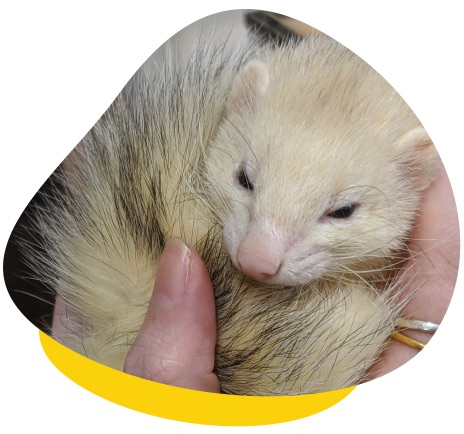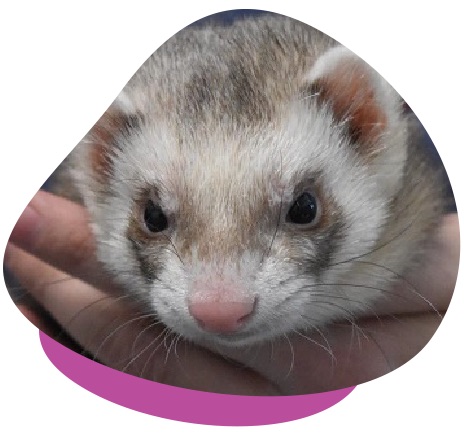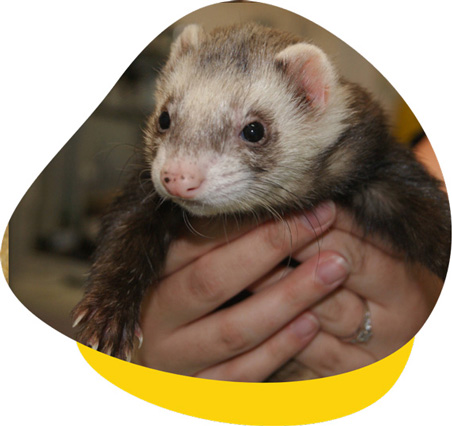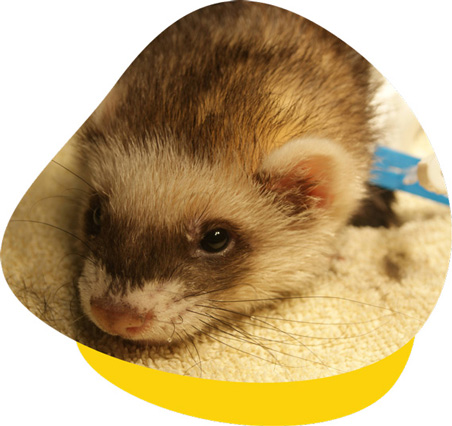My ferret is making odd noises when it breathes – what could this be?
Just like people, ferrets are capable of making a range of different noises. These range from normal sounds such as ‘dooks’ of excitement when playing, through to abnormal noises such as excessive sneezing, coughing or wheezing.

Sneezing
This involves the upper airways (nose and sinuses) and is due to irritation of these passages. Sneezing helps clear irritants and can be normal in ferrets as long as it is only heard occasionally.
Some signs that the sneezing may be due to a more serious condition include sneezing with discharge such as pus or blood, or multiple sneezing fits a day.
Coughing
This involves the lower airways (trachea and lungs). Coughing can either be dry or productive, with productive coughing describing material being expelled from the mouth during the process. Coughing is considered abnormal if frequent (multiple times a day) and is often an indication of a bigger health concern.
Wheezing
This is a high-pitched noise often compared to whistling and is caused by narrowing of the airways. This is rarely normal in ferrets and can be a symptom of foreign material in the airways or conditions such as allergic airway disease.


What are the causes of sneezing and coughing?
There are many causes for sneezing and coughing, with some more serious than the others. It is important to get your pet ferret checked if you are concerned, as these signs can be due to an underlying problem that require veterinary attention. Below are some possible causes of these symptoms:
- Upper respiratory tract inflammation or infection
- Oesophageal irritation
- Viral infections including human influenza (the flu)
- Lung tumours (lymphoma)
- Pneumonia
- Environmental factors: irritation from dust, allergic reaction, harmful substance ingestion
- Heart disease (i.e. an enlarged heart)
What can be done to diagnose the cause of a ferret that is sneezing and coughing?
The diagnostic process is important to rule out serious conditions and allow for an accurate prognosis and successful treatment.
A full physical exam is often beneficial as a first step. Important information can also be obtained from the history. Questions we may ask include the duration of symptoms, any progression over time, your pet’s environment and their vaccination status. These can provide helpful clues for where to direct diagnostics and treatment.
Depending on the findings, x-ray imaging, ultrasound, laboratory testing, cultures or blood testing may be recommended.

How can we treat the disease?
Treatment is very dependent on the underlying cause. In some cases, antibiotics and anti-inflammatories will be dispensed, whereas in other situations hospitalisation may be required to stabilise your ferret.
If you are at all concerned about your ferret or have any further questions, please don’t hesitate to get in touch with us.

